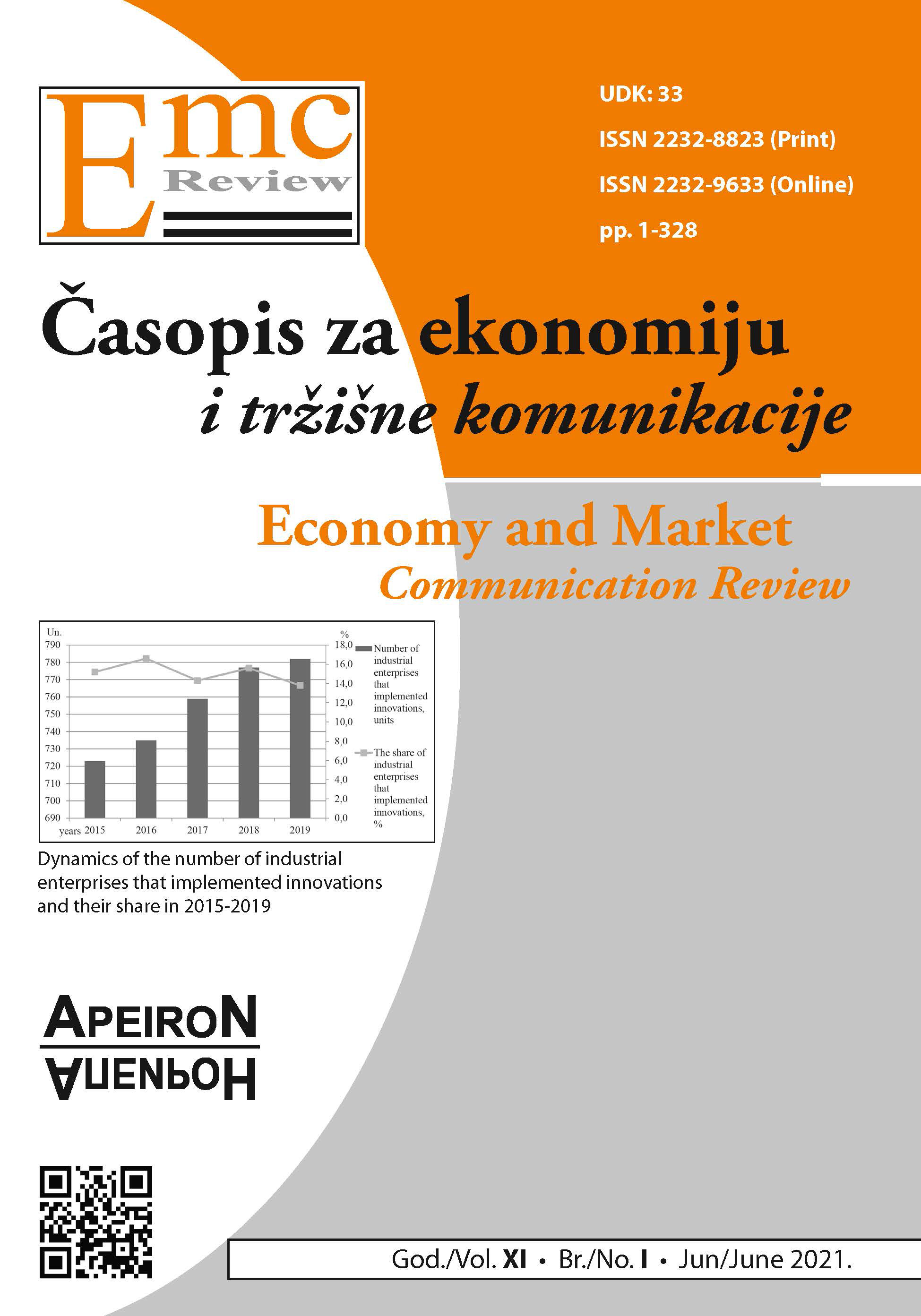OPTIMIZATION ALGORITHM OF RESOURCE ALLOCATION IN ORDER TO EXAMINE THE ECONOMIC EFFECTS OF LINEAR PROGRAMMING MODEL RESPONSE
DOI:
https://doi.org/10.7251/EMC2101109RAbstract
The concept of examining decisions using abstract research constructions as virtual aids enables the design of the management platform and the creation of the behavior of the future state of the system. Checking the effects of decisions in a real system through an appropriate mathematical-logical apparatus certainly affects the reduction of randomness and spontaneity of management. The symbolic connection of the input that produces the combined input action and the output that manifests the reaction expressed by the degree of sensitivity and enables the translation of the imaginary expression of reality into the operative mathematical language. The commitment to this type of model is based on the fact of almost standardized procedures in terms of choosing the priority of including certain forms of resources, which makes it representative in terms of achieving the goal function defined by the criterion of optimality. In this sense, we can talk about a whole range of optimization problems with mutually inconsistent tactical goals and thus the need for their refined balance, and one of such challenges is the focus of attention of a specific research project. The mathematical model represents a formalized description of the action of physical contents, and we use it to support the decision-making process when the complexity of reality allows that. Accordingly, to express the regularity of functioning, a deterministic model of linear programming in the form of a set of relations describing the input-output effect of influential factors used in this paper. With a tolerant simplification of reality, the perception of the model, based on the coincidence with the structure of the original, actually shows an approximation that means analogous behavior demonstrated on the quantitative model or its derivative - the optimization model. This thesis supports the fact that the corresponding relationship between the model and the original allows the examination of the behavior of the observed hypothetical system, and the analysis of the sensitivity map of the variable, in the form of a goal function, becomes a source of modeling information. Also, the system is not influenced by a high rate of change that would mean expanding from deterministic to stochastic modeling, but all methodological resources are mobilized so that the model concept would not become a theoretical misconception that would lead to quasi-decision making. The author’s analytical thinking and logic try to give a chance to the imagination, which connects creativity and physical resources that indicates several alternatives, which contain future parameters. In this way, the authors use the model as an increment of knowledge to connect the a priori management reserve of their accuracy with the reality of hypothetical data within a rational approach.
